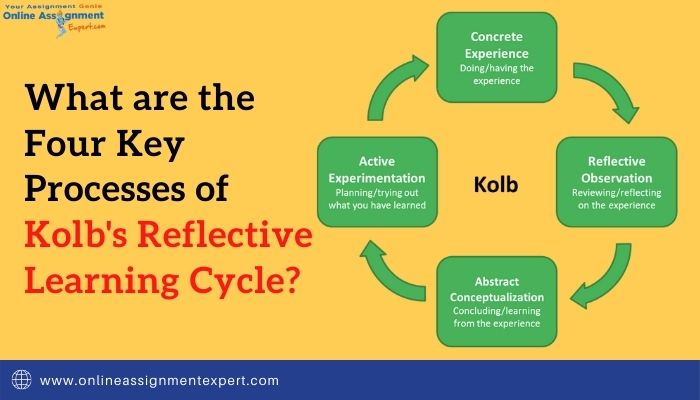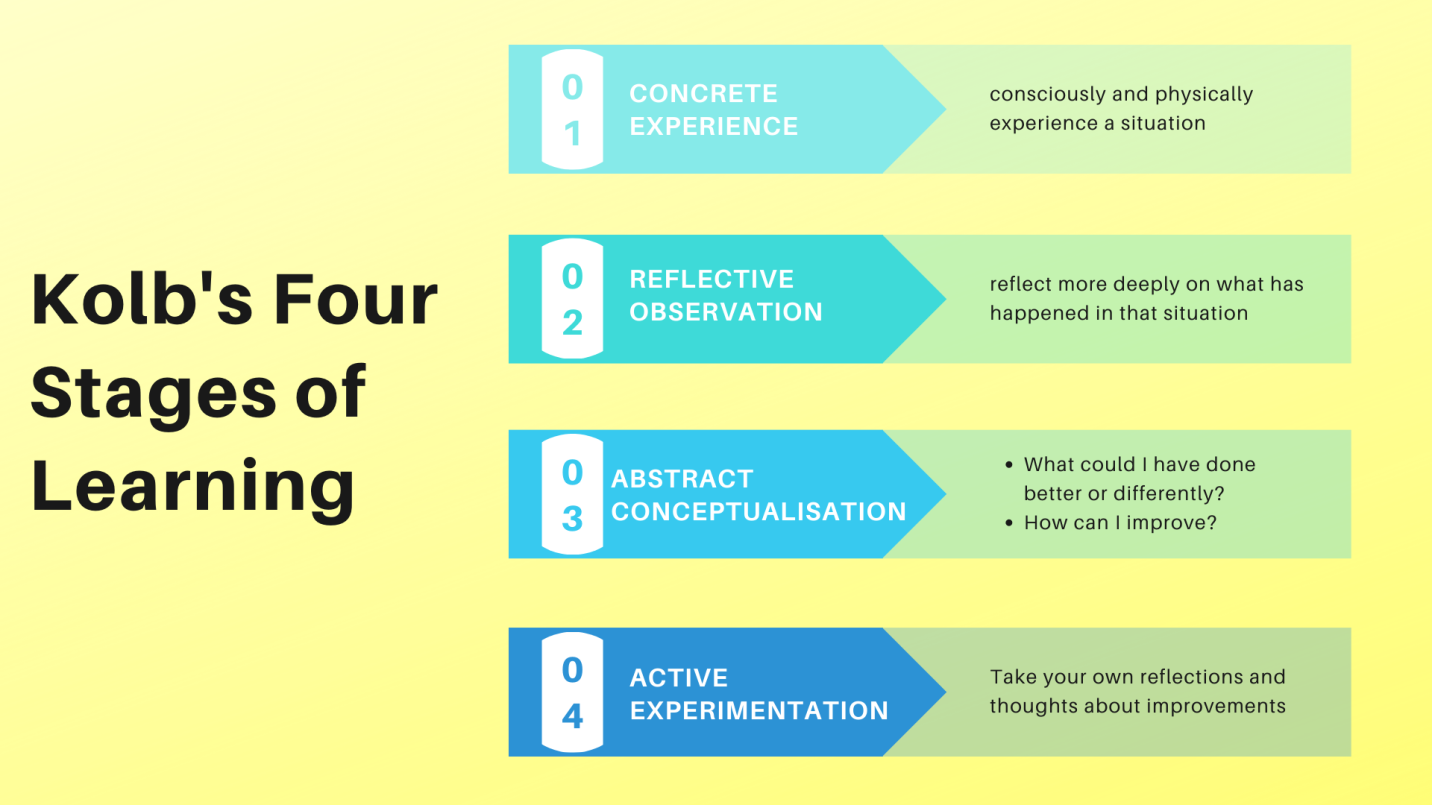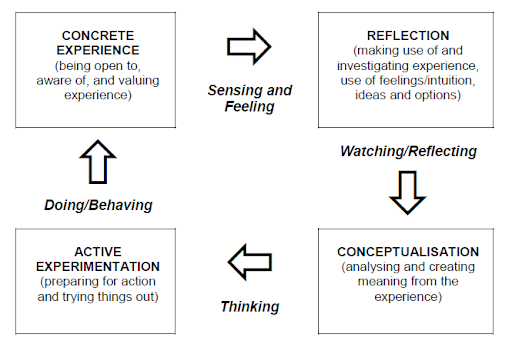
While pursuing nursing courses, you come to learn about different reflective cycles such as the Gibbs Reflective Cycle and Kolb’s Reflective Cycle. In this blog, we are going to discuss the Kolb’s reflective learning cycle and its processes. Hopefully, this blog will be quite useful for you in terms of enhancing subject-knowledge and writing assignments as well.
In general, Kolb's reflective model is said as an “experiential learning”. The key basis of Kolb’s reflective learning cycle is to review, examine, and evaluate our experiences systematically in three stages. When the process is done completely, the new experiences will be formed as the initial point for another cycle. However, the four key processes related to Kolb’s reflective cycle are discussed below by our nursing assignment help Australian experts.
Kolb defines learning as a process where knowledge is gained with the transformation of experience. This learning experience includes four stages –
These steps or stages of learning normally move in a cycle that starts with the student’s concrete experience and ends with active experimentation.
Now, the question is - what is ‘learning’? Generally, learning is all about:
Although, there is no such packages or formula that can completely encompass the learning process. However, let’s focus on exploring Kolb’s four processes of learning. The Kolb learning model says that learning is a never-ending cycle that includes four stages. It shows the ways in which experience is translated by means of reflection into concepts. As a result, it is used as a guide for new experiences and active experimentation. All the above-illustrated stages follow each other in the Kolb’s learning cycle. You may understand that cycle can take place at any point but the stages should be followed in the cycle.

Here is a snippet that describes The Kolb Experimental Learning Cycle.

Concrete experience: Here, you physically and consciously experience an incident or a situation that makes you understand that you are required to reflect systematically to enhance your existing practice or skills or learn something new. Now, you should make a note of that particular situation and discuss what you see, how do you feel at the situation, and what do you think when it takes place.
Reflective observation: Once you are completely done with the concrete experience tasks such as describing experiences, now you must reflect deeply on that situation discussing what happened, how it happened, etc. As per our nursing assignment help experts, you can ask the following question to yourself in order to answer this section:
Abstract conceptualisation: The questions that you have answered in the above section such as - what has worked during the situation and what does not, and what are the main causes of the situation, etc. Previously, you have tried to find ways to deal with situations and prepare strategies based on your experiences so that it can be effectively dealt when faced again. Moreover, in abstract conceptualization, you are required to research for literature and consult colleagues in order to get a complete understanding and better ideas.
Active experimentation: Active experimentation is now being practising as a theoretical knowledge where you are free to take your own thoughts and reflections to improve. You can also internet relevant theories and strategies into action. Some of the strategies will work and some won’t.
These were the four key processes of Kolb’s Reflective Learning Cycle. If you are a university scholar and want to gain further knowledge then you may contact Online Assignment Expert. Taking help from Online Assignment Expert assists you in numerous ways such as –
Moreover, you come to interact with subject-matter experts who are highly-experienced and hold expertise in nursing reflective cycles including Kolb’s learning cycle. So, don’t hesitate to avail assignment help with us. We are here to guide you in every possible manner under a nursing assignment help Australia service.
Get
500 Words Free
on your assignment today